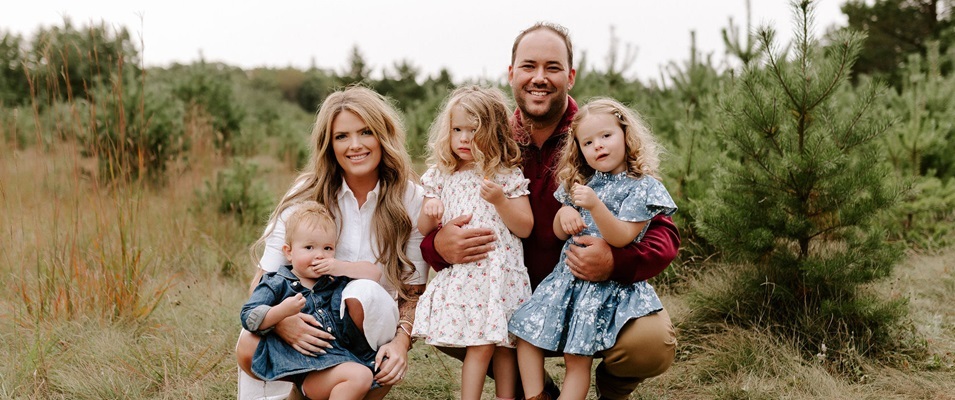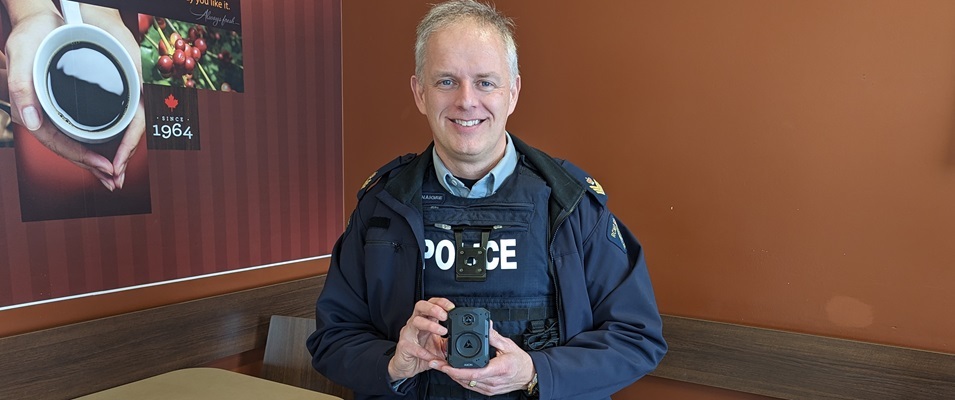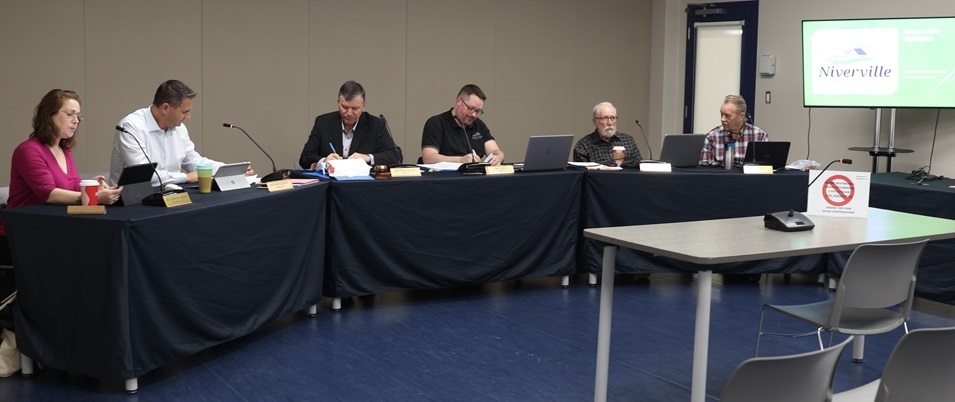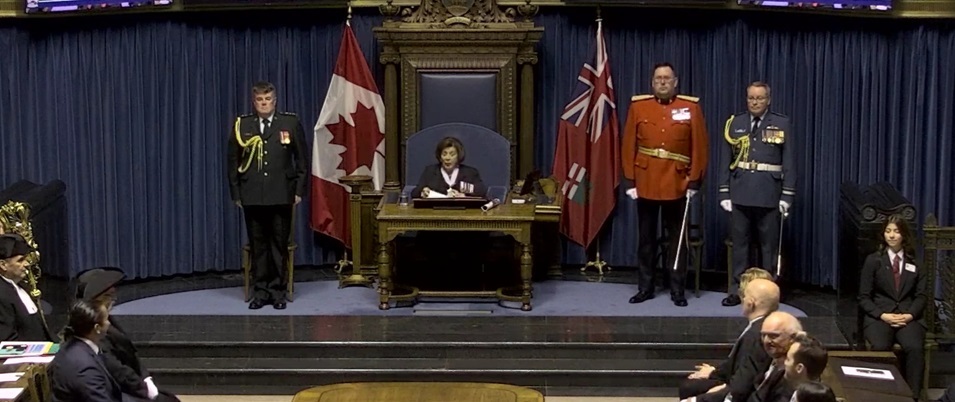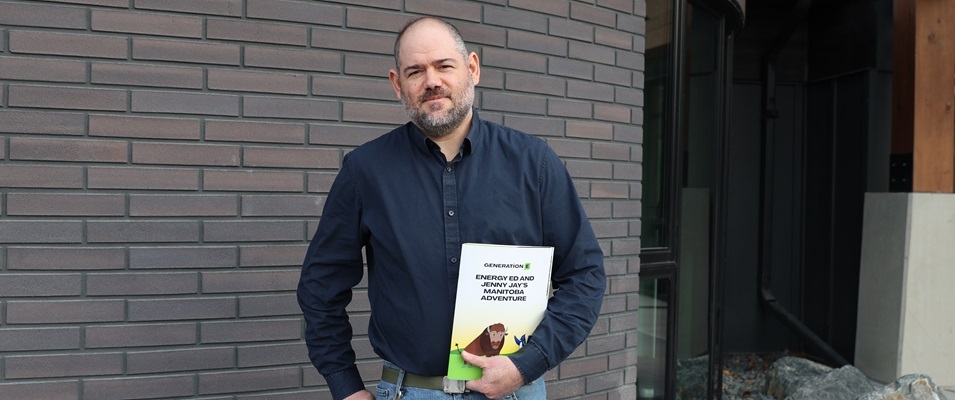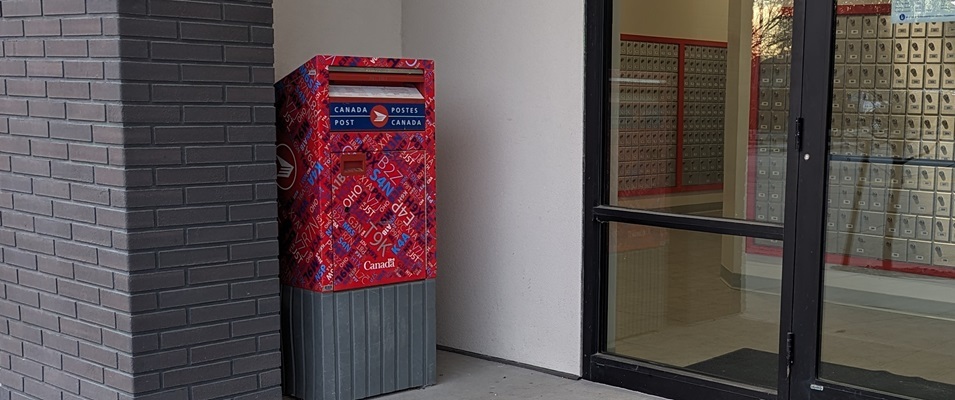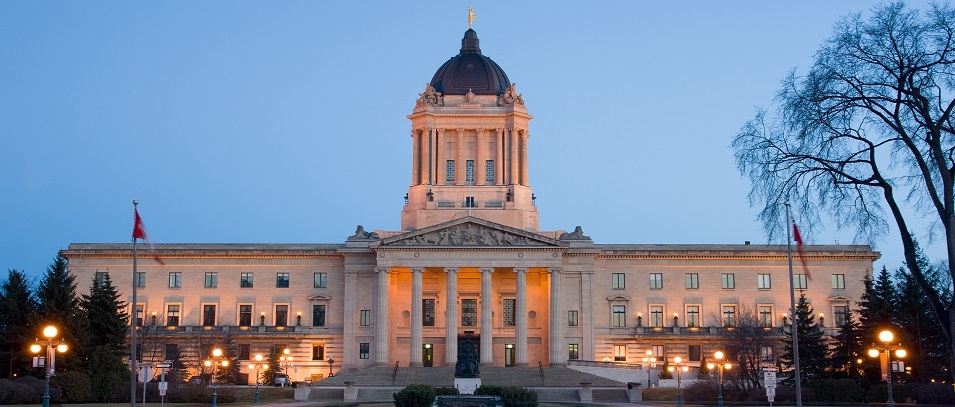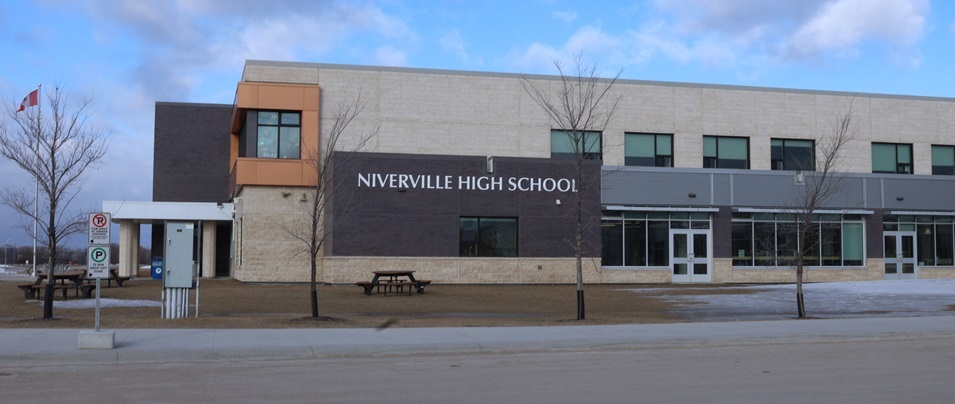
It’s been over a year since The Citizen covered a story on project-based learning (PBL) at the Niverville High School (NHS). At the time, at least one student and a good number of parents chose to speak out regarding their disappointment in the school’s one-track mode of teaching for students in Grade Nine and Ten.
Since then, a second track has been added to the school’s programming for those grades, reflecting a more traditional style of learning. It’s been dubbed by school administrators as standalone learning.
According to parents whose children opted in for standalone learning this year, it mimics the style of learning their kids had become accustomed to throughout their elementary and middle school years.
For parents and students who believe that traditional learning techniques better suit their needs, the return to this mode has been a welcome change.
If the first eight months of standalone learning has demonstrated anything to these families, it’s that a degree of discrimination appears to exist between the two learning tracks. A number of standalone students feel like they’re being punished for their choice to be here.
These feelings of discrimination have arisen as a result of students being left out of school-organized field trips that are geared exclusively for students in the PBL learning track. The field trips have taken students to the Museum of Human Rights, The Forks, and escape rooms in Winnipeg. The escape rooms are billed as a fun way to experience team-building skills, and the museum visit has to do with curriculum coverage—the same curriculum, parents argue, which applies to both tracks.
These are also excursions, parents argue, that every student in those grades could and should be able to benefit from, regardless of learning track.
While PBL students are off enjoying these field trips, standalone students are kept back. The students who feel this marginalization most succinctly are those who share a math class or elective class with students in the PBL track.
According to the students left behind, which in some classes is as few as two or three, they are expected to keep themselves entertained in empty classrooms. Learning is paused to prevent them from getting ahead of students who are out on the field trip.
But there’s another reason why parents with kids in the standalone program get the distinct feeling that administrators at NHS may not be fully supportive of their kids.
Despite the school’s choice to offer a standalone track last year, the NHS website has yet to provide any indication that this mode of learning is even available to children coming into ninth and tenth grades.
Still on the website is the promotional video that came out when the school first opened its doors. This video was created to promote the PBL program. The school’s principal, Kimberley Funk, introduces PBL as an optimal learning style in comparison to an education style that was “built on a system of long ago” and prepares “kids for jobs that don’t even exist.”
For at least a handful of parents, the video seems to send a clear message: administrators here don’t want to promote or encourage traditional learning for students in these grades.
Yet when the standalone option became available to students for the first time last fall, 40 percent of students across Grades Nine and Ten opted in for the 2023–24 school year. In total, 44 of 110 Grade Nine students are enrolled in the standalone program. In Grade 10, that number is 38 out of 95.
With ratios this closely matched, many parents feel that the school should have received a clear message. Parents and students want options, and both options need to be promoted, encouraged, and given equal treatment by school staff.
PBL vs. Standalone
If parents of students in the standalone track want to make anything perfectly clear, it’s that they have nothing against the use of the PBL model. For many children, they say, it provides a unique way of learning, especially for students who struggle to learn in a more traditional environment.
But it’s not for all kids, and offering options is imperative if the goal is to keep Niverville’s high school students in town.
As the name suggests, PBL is a teaching mode that focuses heavily on learning the curriculum through completing hands-on projects, both individually and in groups. The school introduced PBL when they first opened the doors in 2019. It has been in ubiquitous use across Grades Nine and Ten until this past fall with the introduction of standalone learning.
Many see PBL as traditional learning’s opposite. The PBL mode does away with textbooks, lecture-style instruction, notetaking, fact memorization, and test and exam writing.
Without the use of textbooks, students are encouraged to use the internet for their research as well as speak to experts in fields that are relevant to their topic.
Students are no longer graded based on percentages but rather a scale of limited, basic, good, very good, and excellent to indicate their understanding of a subject.
The philosophy behind PBL is that it can provide students with more freedom and decision-making power in their education.
Still, there seems to be a contingent of students who enjoy the challenges of fact memorization, test writing, and all that comes with more traditional methods. This is where they thrive.
Perhaps this is why, in other Manitoba schools where PBL is offered, it’s considered an opt-in program that runs alongside but not exclusive to the traditional learning track.
Inequality Between Tracks
Chantal Wieler is a local mom with two kids attending NHS, a son in Grade Nine and a daughter in Grade Ten. She describes her kids as having different learning styles and yet felt they would both still benefit from traditional learning.
Wieler’s daughter is a high-achieving student, typically averaging scores in the 90 percentile and demonstrating strengths in fact memorization through testing.
This child spent her Grade Nine year in PBL, before traditional learning was an option at NHS. But Wieler says her daughter was so unhappy in that setting that she asked to enroll at the Steinbach Regional Secondary School for Grade Ten, simply as a way to get back to traditional learning.
Wieler’s son isn’t quite as driven as his sister, but Wieler wants to see him challenged, something which she feels can only happen through the grading and rigorous testing of traditional learning.
“I wanted him to be able to learn to do his own work and get his own mark,” Wieler says. “Whether or not he gets a lower mark than he would have in PBL is irrelevant. At least it’s his mark.”
For these reasons, Wieler was excited to discover that standalone learning was finally being introduced for the 2023 school year. Wieler loves her community and wasn’t thrilled with the prospect of her kids attending school elsewhere.
Wieler herself is a high achiever, having completed bachelor’s degrees in both the arts and education. In that setting, she first became aware of the PBL teaching style. While she has never been opposed to its use in schools, on its own she doesn’t believe it prepares kids well for postsecondary education, where traditional learning methods are still the norm.
“I want to keep my kids’ postsecondary education doors open,” Wieler says. “And in the majority of postsecondary education, it’s still standardized. You’re still writing tests, still writing papers.”
After watching her daughter struggle through one year of PBL, Wieler had some big concerns.
Firstly, she found the elimination of textbooks problematic, since such books are understood to be vastly more reliable sources of facts than the internet. They’ve been carefully vetted by an educational council prior to their approval for use in the classroom.
Secondly, Wieler says that her daughter couldn’t thrive in such a loosely structured environment.
With the development of standalone learning this year, Wieler felt confident that things would improve significantly for her daughter. And for the most part, that has happened.
But the underlying feeling of discrimination hasn’t been lost on either of Wieler’s kids. In fact, Wieler says that even her school friends in the PBL track see the injustice. Thinking the first field trip exclusion was a one-off incident, Wieler encouraged her kids to let it go. After all, life isn’t always fair.
When the same scenario continued to play out, however, Wieler decided to bring it up with NHS administration. Perhaps there was simply a misunderstanding.
Unfortunately, she says that she was given little empathy or reassurance. Neither did Wieler receive any reassurance that standalone learning would be offered again next year, a fact that she found disconcerting.
So in February 2024, Wieler decided to reach out to the Hanover School Division. She was invited to a sit-down meeting with vice superintendent Colin Campbell. This was a productive meeting, she says, and she felt heard and understood.
According to Wieler, Campbell agreed that her concerns were valid, indicating that better information needed to be coming out of NHS regarding the availability of both learning tracks. As well, she says that Campbell promised to look into the culture at NHS in the hopes of ensuring all students can move forward feeling equally represented and respected by school staff.
Campbell also assured Wieler that the standalone stream would be available again in the 2024–25 school year.
“Next year I’d like to see equal treatment between the two groups,” says Wieler. “We’re just looking for that equality.”
Punitive Treatment
Colleen Dyck’s son attended a private school during his Grade Nine year but returned to Niverville for Grade Ten when standalone was offered.
Within his first couple of months back, though, Dyck says she saw that his attitude toward school began to spiral. On field trip days, he’d ask to stay home since he knew he wouldn’t be included and didn’t want to sit in a virtually empty classroom with nothing to do.
Since then, he has transferred back to private school.
“He chose to switch schools for the second semester due to concerns about the quality of education, along with what feels like punitive treatment of students who elected not to participate in the PBL experiment,” Dyck says. “I’ll clarify that this isn’t a comment about the quality or passion of the teachers in any way. My son is good at rolling with the punches, and we’ve taught our kids that life isn’t fair and they must respect authority as long as it doesn’t compromise them respecting themselves.”
After the first missed field trip, Dyck says that she encouraged her son to tough it out. But the trend didn’t change.
“As time went on, I saw his motivation and engagement dwindle,” says Dyck. “This unequal treatment wasn’t just about not being able to go on outings. This was starting to affect him on a different level. He’s an academically focused kid and this change in him was worrisome. Our kids deserve our best. They need to be challenged and respected, especially as they transition through the stage of life where they are establishing their worldviews.”
Dyck says that she regrets not taking her concerns to upper administration at NHS. However, based on their historical lack of response to other parents who’d tried to get answers, she’d lost optimism that anything would change.
At this point, she’s just pleased that her son has found a school where traditional learning is taken seriously.
“PBL might work well for some kids, but it hasn’t gone over well for just as many,” Dyck says. “There is no one-size-fits-all in education and being open to new ways of learning is great. I commend the teachers and administration [at NHS] for being open-minded enough to try a different approach. However, when embarking on implementing a new methodology of learning, it is extremely important to be nimble and receptive to feedback and to give credence to concerns of parents.”
As for the omission of information regarding standalone learning on the school’s website, she says this just serves to reinforce her belief that NHS leadership isn’t interested in listening to what so many parents have had to say.
Anonymous Parents
Some parents who agreed to comment on this story asked to remain anonymous, in order to protect their kids from further discomfort. The first is a dad whom we’ll call Paul.
Paul has a daughter attending Grade 11 and a son who just entered Grade Nine. His daughter pushed through two years of PBL at NHS—but it cost her, he says. According to Paul, she went from a high-achieving student with marks always in the highest percentile to a C-averaging student by the end of her Grade Ten year.
Her self-confidence plummeted, until Paul took matters into his own hands and hired a private tutor to get her back on track.
“I’ve spent probably close to $2,000 getting her tutoring because she wants to have an academic [career] and she’d almost relegated herself to the idea that maybe it’s not for her,” Paul says.
From his perspective, PBL is an experimental technique being tested on students at NHS. If this wasn’t the case, he adds, other schools in the division would be rolling it out, too.
“Usually the high achievers are the ones doing a lot of the work [in PBL],” Paul says. “PBL tends to pick up the marks of the lower achievers and tends to drop the marks of the high achievers. So I need to understand why that’s a good thing, especially given the competitiveness of postsecondary education. When they’re applying for different schools or trying to get scholarships, one percent matters.”
After his daughter’s experience in PBL, Paul and his wife began looking at private school options for their son, who was about to enter Grade 9. Thankfully, the standalone program was introduced just in time for his enrollment at NHS.
Within the first month of Grade Nine, though, Paul received a text message from his son while he was in school: “Hey, all the PBL kids went to an escape room and The Forks for lunch and I’m sitting here by myself in math class doing nothing.”
When it happened a second time, Paul spoke with the vice principal, Graham Sereda. He was told that opportunities would arise for the standalone students as the year progressed.
But when his son was left behind for a third time in January, Paul reached out to Sereda again.
“It’s like, throw a couple of extra [standalone] kids on the bus and give them an assignment [based on the field trip],” Paul says. “What would the cost of that have been? Like, nothing.”
According to Paul, Sereda seemed to empathize with the plight of the standalone students. Even so, he says there’s been no evidence of any changes since then.
In March, Paul says that his son has decided to enroll at the SRSS next year. There, he hopes to have a better experience.
The second anonymous parent, who we’re calling Lisa, has a son in Grade Nine enrolled in the standalone program. When trying to determine which track to choose for him, she says that the information coming from the school’s administration felt biased.
“There was a big push to get kids to enter into the PBL program,” says Lisa. “Very little information was provided upfront about the standalone classes. Even after meeting with the principal and asking specific questions, we struggled to understand what the standalone curriculum was going to look like. We still don’t have a clear understanding into the second semester.”
This kind of perceived bias and vague feedback has Lisa and her child considering a move to another school next year. That, and the lack of opportunity their child has had in terms of educational field trips.
“We know quite a few parents that will be looking at sending their kid to SRSS starting in September 2024,” Lisa says. “We are also looking into this option. However, when kids from Niverville want to go to SRSS, they are forced to choose vocational [courses] or they will not be considered. This is unfortunate.”
By mid-March, NHS had yet to offer the standalone students any field trips or excursions, whether alongside PBL students or on their own.
Parents Who Believe in PBL
A number of parents have also stepped forward to offer a different view.
One of those parents is Allison Hornung, whose son is enrolled in PBL this year for the first time. She says it took him a while to come around, but he’s doing well now. Hornung says that she and her husband made the decision to place him in PBL after their conversation with school administration.
“In discussion, my husband and I felt kids that were going into the workforce were often book smart but lacked the most simplistic of skills,” says Hornung. “We felt that working in teams doing PBL would give them skills they may lack otherwise. Forcing them to get out of their comfort zones, if you will. We felt that my son would grow better in this experience, more so than traditional learning. And we still feel that way. This was definitely the way to go for our family.”
As for regaining skills like memorization and testing, she says that will come again in Grades 11 and 12, in time to prepare him for a postsecondary education if that’s in his future.
Another parent, this one opting to remain anonymous, has a child who successfully graduated from the NHS. In fact, her daughter received the Town of Niverville scholarship.
“PBL proved to be a perfect fit for her,” she says. “Her confidence, communication, and teamwork skills are excellent and I truly believe it’s because of PBL. Through PBL, she was able to speak her mind, focus on the process of her work, and produce projects of excellent quality. She finds that the skills she learned in PBL are extremely helpful in her post-grad job position.”
HSD Superintendent Releases Statement
The Citizen reached out to HSD regarding the situation occurring at NHS this year, posing questions about what kinds of accountability and oversight are provided by the division to ensure that the PBL and standalone learning tracks are implemented effectively. We also asked whether the division monitors the reasons that some parents take their children out of NHS to pursue their education elsewhere.
The division did not address these questions specifically. Instead superintendent Shelley Amos provided the following statement.
“We respect and support the choice of those students who opt for the standalone track, which offers an equally valid and effective educational path. HSD is committed to ensuring equity of programming between both tracks.
“Our shared goal is to provide all students, regardless of their learning path, access to high-quality education and resources, enabling them to achieve their full potential and prepare them for future challenges and opportunities. To that end, we are always open to feedback from students and parents and caregivers.
“Specific to learning outcomes, our schools adhere to the curriculum standards as prescribed by Manitoba Education. We are dedicated to meeting and surpassing these standards. Teachers and school administrators share responsibility for achieving the stated learning outcomes. As highly qualified and trained professionals, we have complete confidence in their abilities.
“The school administration will continue to review the NHS website to determine whether additional information or content corrections are necessary.”





